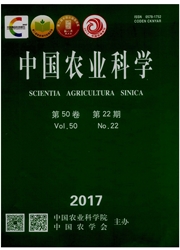

 中文摘要:
中文摘要:
当关于使用化学药品的决定被单个农民做时,农业化学使用在环境问题上引起了一颗公共担心。相对农业化学使用的农民的批评决策角色为他们可以影响如此的判断的各种各样的化学药品相关的危险和因素的感觉的精确信息创造需要。基于在中国的河南省省在 Xinxiang 县从 177 个陆地操作符收集的数据,实验分析被进行检验在农民的字符和化肥申请的行为之间的关系。学习调查结果揭示那:家庭头和家庭的特征,和耕作管理的性质断然影响使用的化肥的数量;关于化肥申请的环境影响的化肥和知识的信息由对比有否定影响。为了在农场提出有效污染控制政策,铺平,决策者由示范工程,技术帮助,和教育节目把信息传送到制片人是必要的。在改变的政治环境下面,教育和经济刺激的某联合能是更低的费用,为完成的更有效的工具需要环境保守目标。
 英文摘要:
英文摘要:
Agricultural chemical use has caused a public concern over environmental issue while decisions about applying chemicals are made by individual farmers. The critical decision-making role of farmers relative to agricultural chemical use creates a need for accurate information on their perceptions of various chemical-related hazards and the factors that may influence such judgments. Based on data collected from 177 land operators at Xinxiang County in Henan Province of China, an empirical analysis is conducted to examine the relationship between farmers' character and the behavior of fertilizer application. Study findings reveal that: the characteristics of household head and household, and the nature of farming management positively affect the amount of fertilizers applied; information on fertilizers and the knowledge about environmental impact of fertilizer application have negative impacts by contrast. To formulate effective pollution control policies at the farm level, it is imperative for policy-makers to convey information to producers by demonstration projects, technical assistance, and education programs. Under a changed political environment, some combination of education and economic incentives could be lower cost and more effective tools for achieving desired environmental conservative goals.
 同期刊论文项目
同期刊论文项目
 同项目期刊论文
同项目期刊论文
 期刊信息
期刊信息
